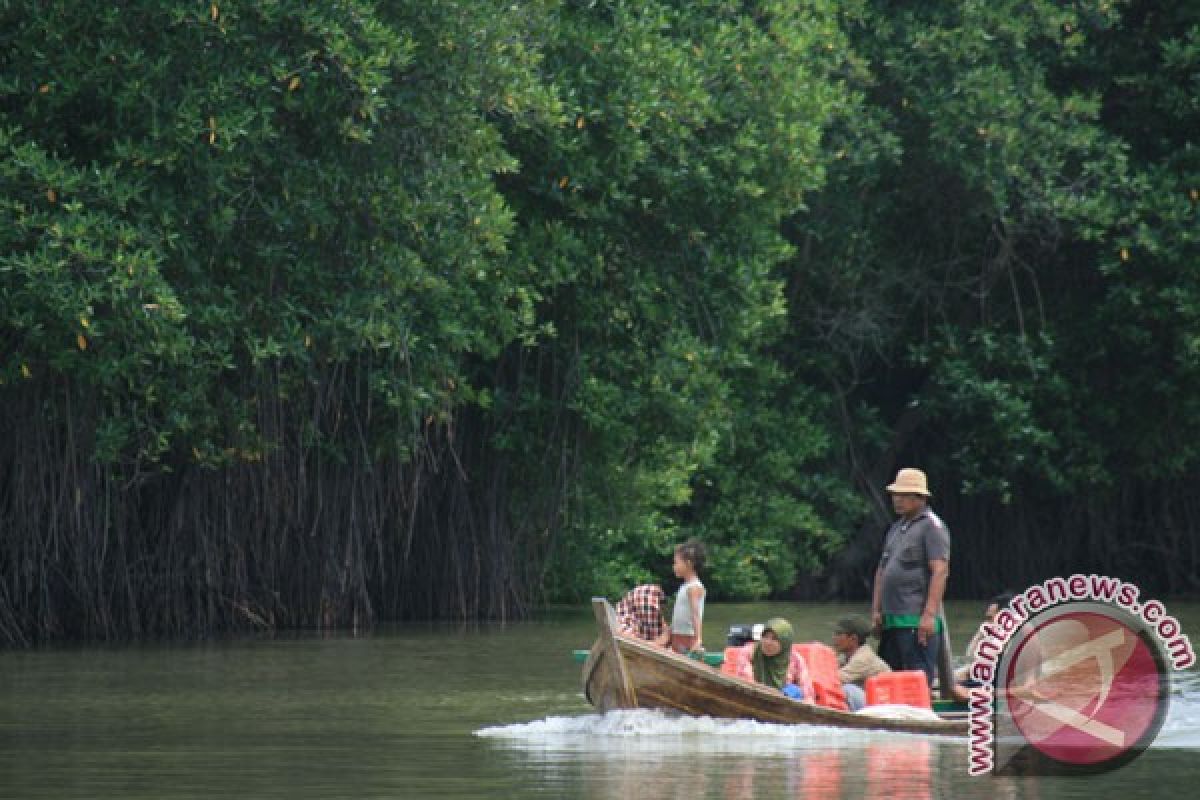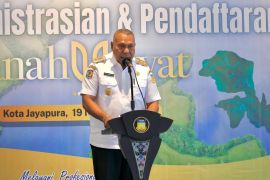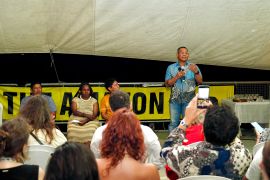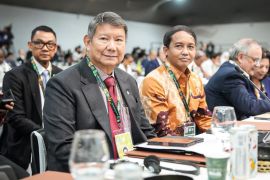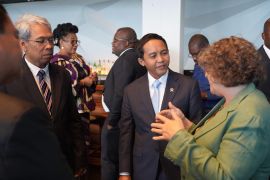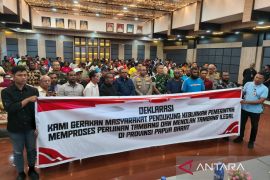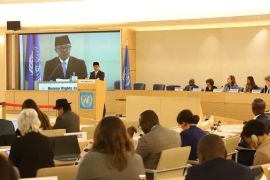"The indigenous community plays an important role in forest preservation because people have local wisdom," he added.
The minister said currently, his ministry is conducting an inventory of indigenous communities across Indonesia in support of the Nagoya Protocol.
The effort is related to instrument development and indigenous communities recognition as well as natural resources utilisation for the benefit of indigenous communities.
"We are concerned about the Nagoya Protocol, especially on the resources` sharing benefit; it is dependent on the indigenous communities," he said.
Kambuaya admitted that there are forestry conflicts between the public, the state and companies, which are mostly caused by the claim that was considered harmful to the public.
The minister said his ministry will take necessary actions, following the Constitutional Court decision No.35/Puu-X/2012 on judicial review of Law No.41/1999 on Forestry.
He explained that the actions are medium to long-term, including the facilitation of indigenous communities` role for traditional forest woods strengthening.
Another example is to strengthen the decision making mechanism in the indigenous communities` in accordance with the applicable laws, he added.
Meanwhile, Presidential Working Unit for the Supervision and Management of Development (UKP4) Head Kuntoro Mangkusubroto said the Constitutional Court`s decision is significantly related to sustainable forest and natural management of the law and ruler of the land obligations.
Mangkusubroto believes that environment and forest preservation require maturity of all parties. Therefore, he urged all parties to support the Constitutional Court`s decision for a better Indonesia.
Reported by Imam Budilaksono
(G006/INE/KR-BSR/F001)
Editor: Jafar M Sidik
Copyright © ANTARA 2013
